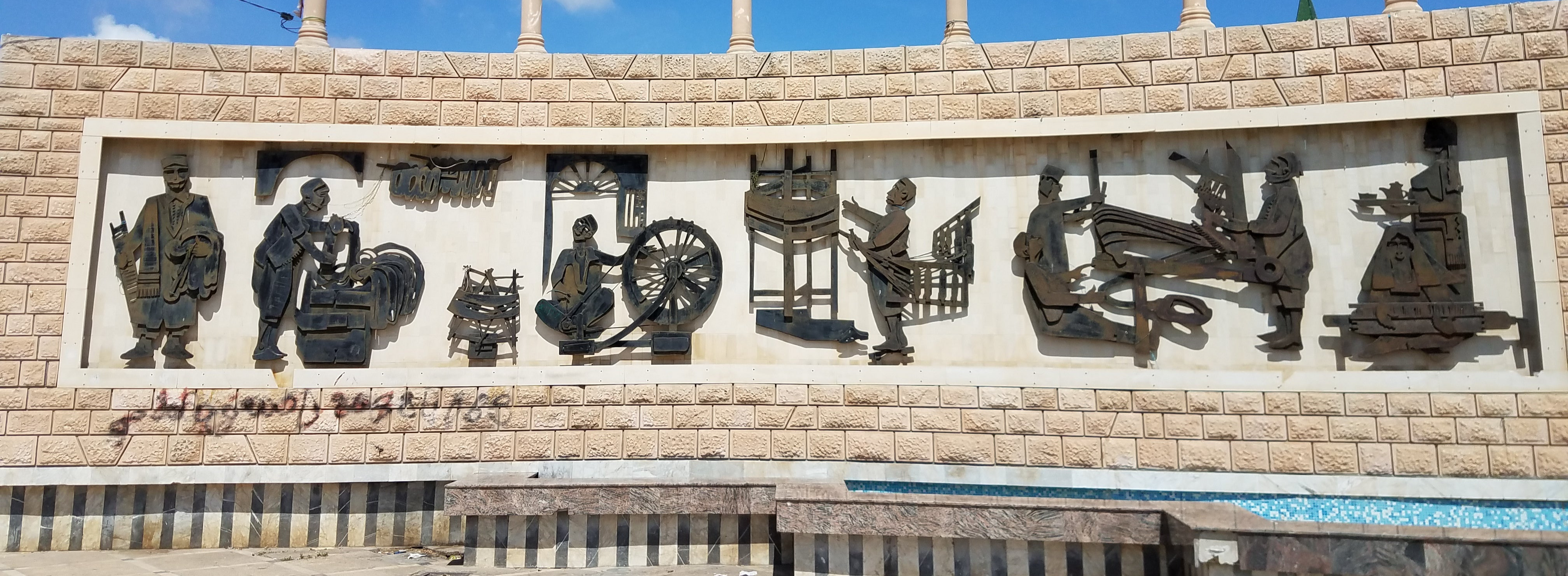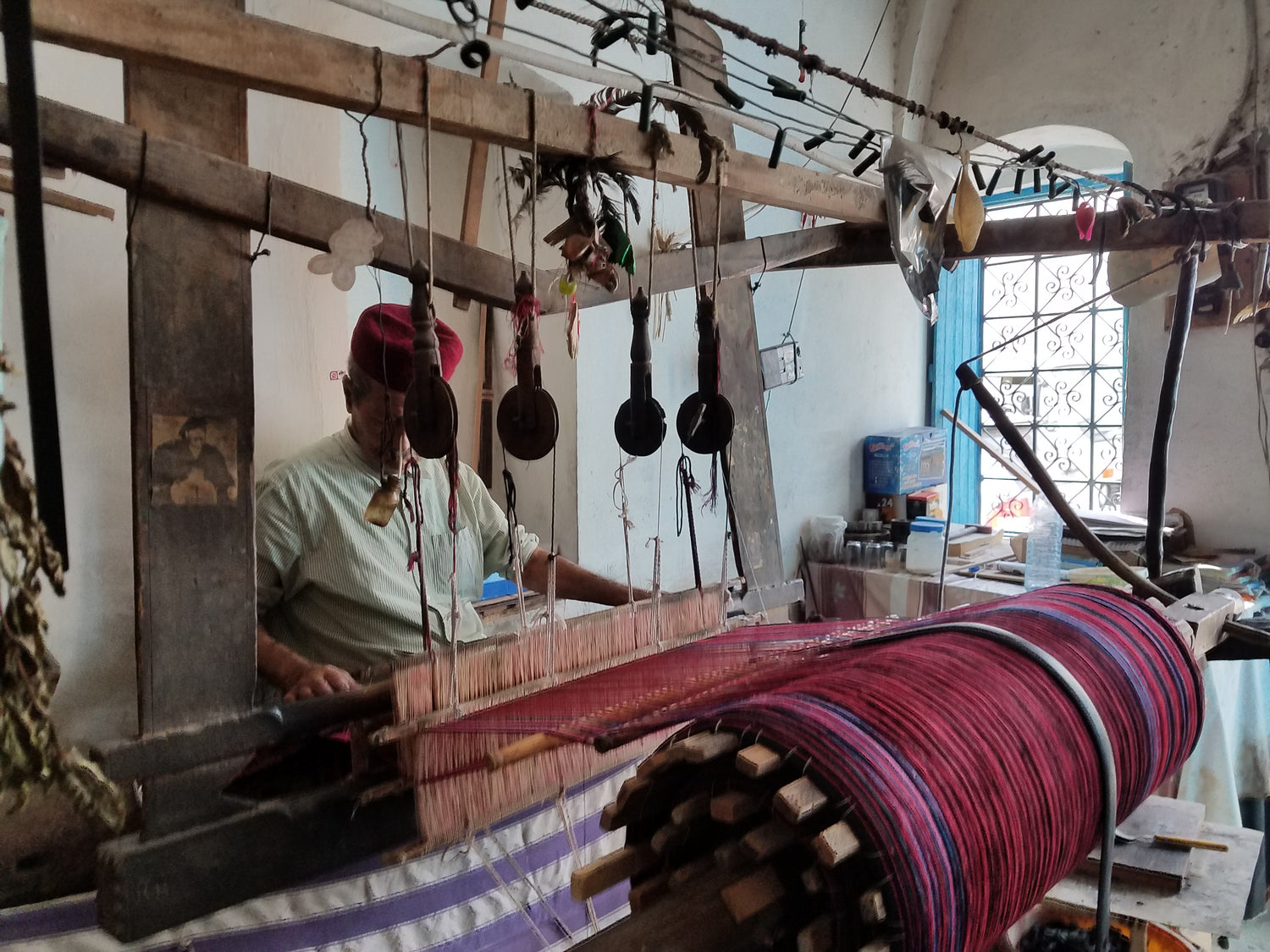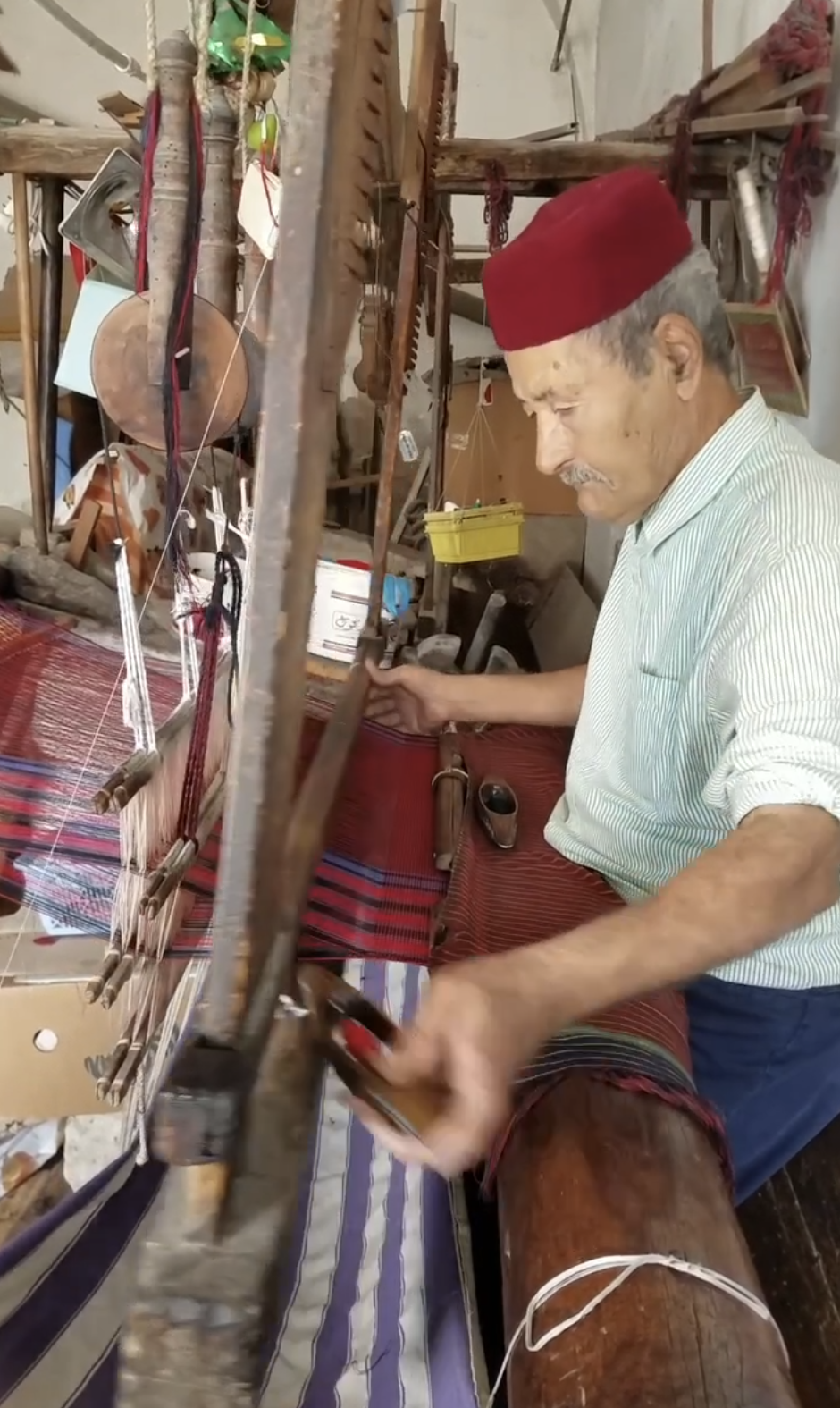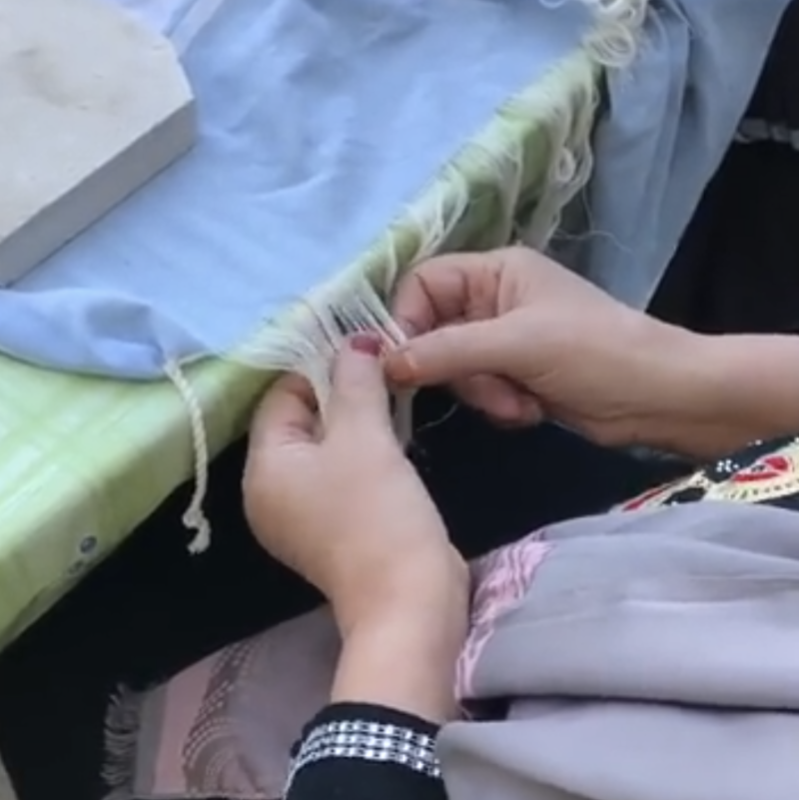The Fouta Weavers
Every fouta begins its journey on a loom, where centuries-old weaving techniques bring fabric to life with purpose and beauty. Once off the loom, each cotton towel is individually finished by hand—its tassels tied and twisted by skilled women who carry forward the heritage of their craft. It’s a tradition of care woven into every thread.

THE ARTISANS

Woven With Tradition, Finished by Hand
In Tunisia, weaving was once a central part of daily life — not only a craft, but a community. Forty years ago, hand looms were a fixture in homes, often housed in a finished building just off the main residence. Looms were set up in efficient U-shaped configurations, and the most senior weaver always earned the prized seat near the door or window. From this spot, they could greet neighbors, negotiate trades, or simply enjoy a warm cup of tea with a passerby. It was more than a workspace — it was the heart of the home.

While much of the weaving industry in Tunisia has now moved to mechanical looms, a few skilled artisans continue to hand-weave with pride. One gentleman, now nearly 90 years old, still works his loom daily — not out of necessity, but to stay mentally and physically sharp. His rhythmic movements are a “weaver’s workout,” involving the precise throwing and catching of dual shuttles and the steady pumping of foot pedals to flex the warp and create an even, balanced weave.

Once a fouta towel comes off the loom, its journey isn’t finished. That’s where the women step in — bringing beauty and detail to each piece. They measure and cut each fouta to length, then carefully remove the excess threads at either end. Taking fringe tassel strands in two equal segments, they tie and twist each one by hand, creating the signature finish that makes every cotton towel feel like a labor of love.
-

A RUSTIC DOORWAY TO A FORMER WEAVER'S HOME IN SAYADA, TUNESIA.
-

FABRIC WOVEN WITH THE HAMSA SYMBOL TO BRING HAPPINESS AND GOOD FORTUNE.
-

TRADITIONAL WOODEN SHUTTLE USED TO PASS THREAD BACK AND FORTH THROUGH THE LOOM.
These details — the woven heritage, the community spirit, and the hand-finished care — are what make our oversized beach towels more than just textiles. They are stories you can hold.



